Orla Smith picks eight great film from the 2020 London Short Film Festival (LSFF), one of the funnest film festivals in the UK.
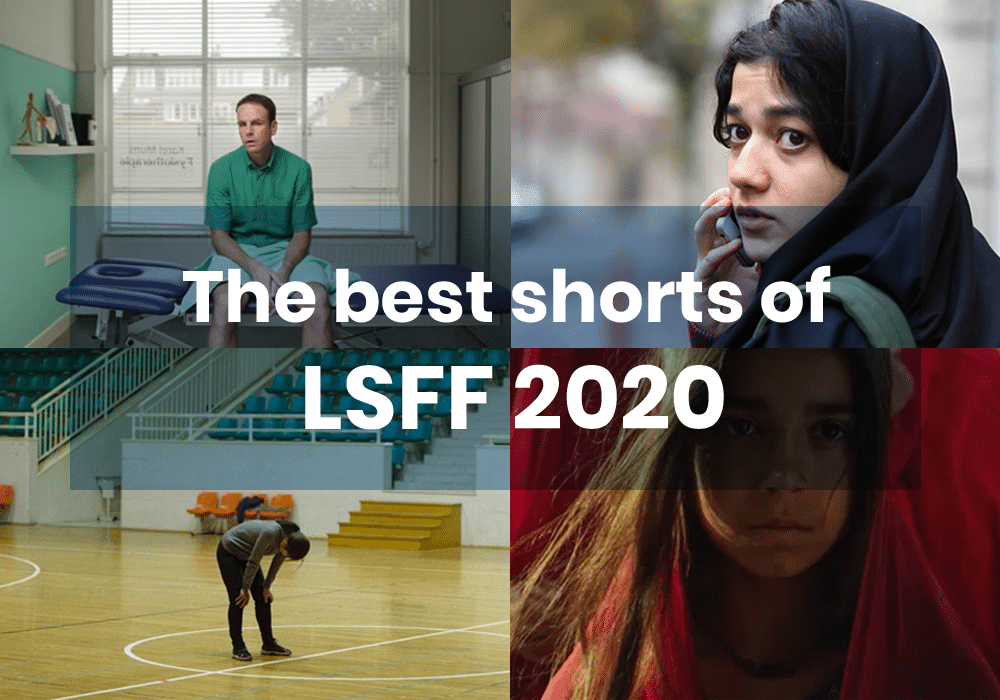
The London Short Film Festival (LSFF) is one of the funnest film festivals in the UK, because absolutely everything is a surprise. The ten-day event hosts hundreds upon hundreds of shorts, and in my experience, they are, at worst just mediocre. The shorts are thematically grouped — like the opening gala “Funny Shit,” or the teen strand “We’ll Never Be Those Kids Again” — so not only can you discover exciting emerging talent, but talent interested in similar thematic ground as you are.
Cleverly, LSFF begins each year with the comedic “Funny Shit” programme, a fun night out that attracts a generous audience, all of whom are ready to laugh. This year’s programme (and festival) began with a short about a very tall man whom everyone thinks is a gnome (Short Calf Muscle): setting off on such an absurdist note felt like a promise from the programmers that LSFF is not a festival that shies away from weird, risk-taking ventures. Sure enough, only an hour later, I had seen a group of middle-aged men deep-throating bananas (Maneater) and a rom-com in which the meet cute involves a man going to A&E to get a broken dildo removed from his rectum.
While I only saw a small portion of the programme (how could anyone feel like a completionist at a festival of this scope?), I left the festival feeling like I’d witnessed some of the world’s most exciting emerging cinematic voices. Many of these films felt unique, and the audience was so clearly engaged with what they were watching: in both Exam and She Runs, the two standouts from the “We’ll Never Be Those Kids Again” programme, certain moments prompted a collective gasp from the audience.
The response is particularly electric when a homegrown talent comes down to watch their film on the big screen, dragging all their friends and family along with them. Filmmakers are asked to shout out from the audience before their film screens: sometimes, they can only manage a polite and nervous hand in the air; other times, particularly at the raucous midnight screening, they’ll reveal themselves in an explosion of hooting and hollering. In any case, there’s a palpable feeling of support for these budding filmmakers and for the advancement of cinema in general. Everyone’s there to discover something or someone great, and to have their minds opened about cinema.
Of the 20-30 shorts I saw at LSFF, I’ve picked out eight that really captured my imagination. Some are already online; some you’ll have to keep in mind and seek out later — and I implore you to do so!
Azaar (dir. Myriam Raja)
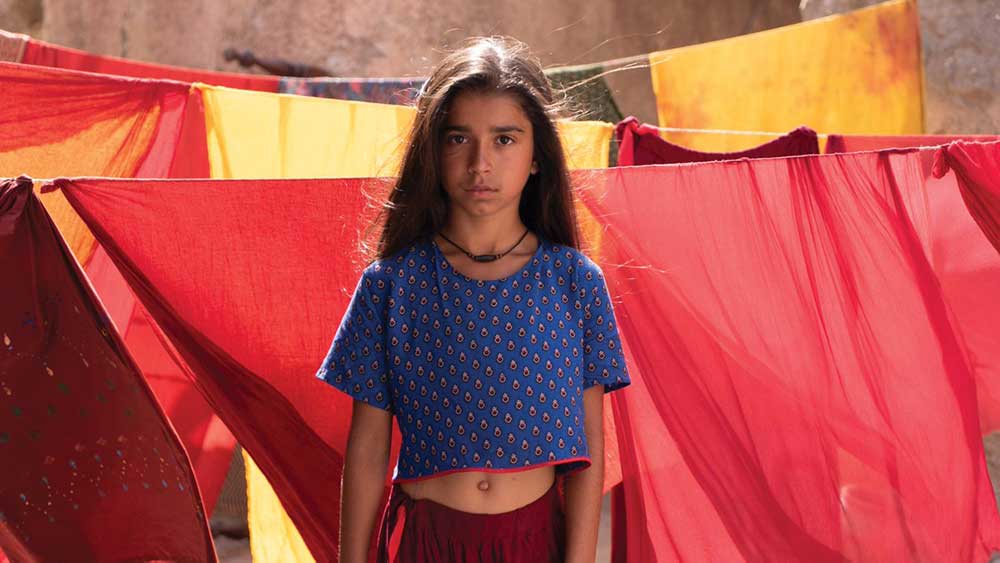
In this BAFTA-nominated, British-produced, Urdu-language short, we see gendered oppression through the eyes of a young girl, Azaar. While the women in her community wait for their husbands to return from war, Azaar is more preoccupied with the exciting prospect of her fast-approaching womanhood. She watches her mother and grandmother carefully, trying to learn what it means to be a woman, but her innocent observations hold so much more danger for the older women, who must conform to standards of womanhood or risk their own lives.
Azaar is an overtly political portrait of injustices, set amongst war. But it also avoids melodramatic trappings. Raja patiently observes her characters rather than leering at their misfortune. There’s no explicit violence; rather, the violence comes through in charged silences between characters and a matriarch’s firm and final words of disapproval.
Bin Day (dir. Becky Manson)
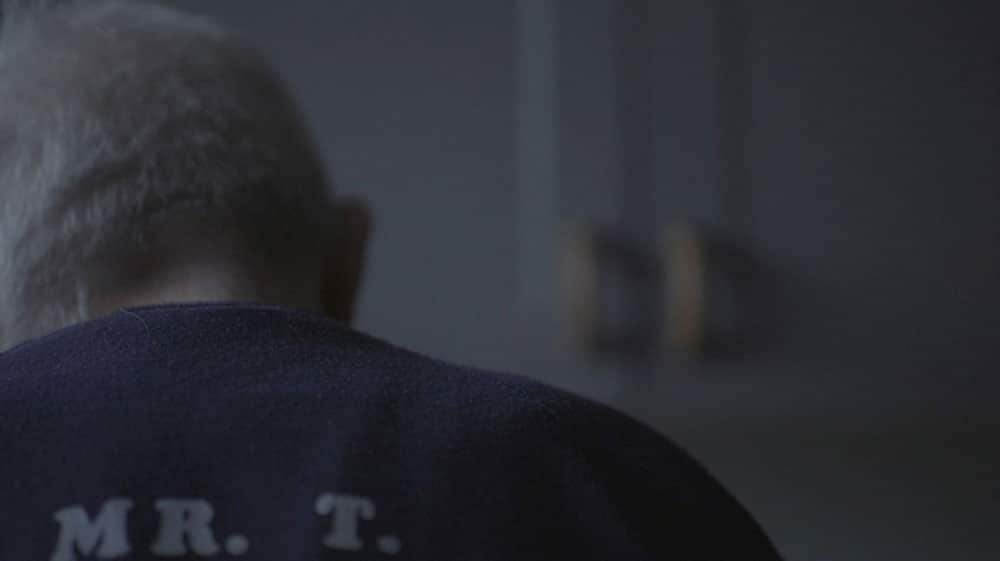
“I don’t pass the time; the time passes me! It’s just a case of, “Christ, this is Saturday again, you know?” These frank words, from the 90-year-old documentary subject, are spoken halfway through Becky Mason’s Bin Day. It’s the only time he directly addresses his slow and solitary existence as a pensioner living alone in the Scottish countryside. His words are a little shock to the heart: we spend the rest of the film patiently watching the rhythms of his everyday life play out, listening to the comforting tones of his deep Scottish brogue, looking sadly upon the only food in his cupboard (tinned soup), and chuckling when he calls himself “a religious toaster” (he really, really likes toast). It seems a sad existence, although one with its comforts, but hearing him comment on his sense of fading time brings the film’s mundane vignettes into sharp relief.
Downward Facing Dogs (dir. Karsten de Vreugd)
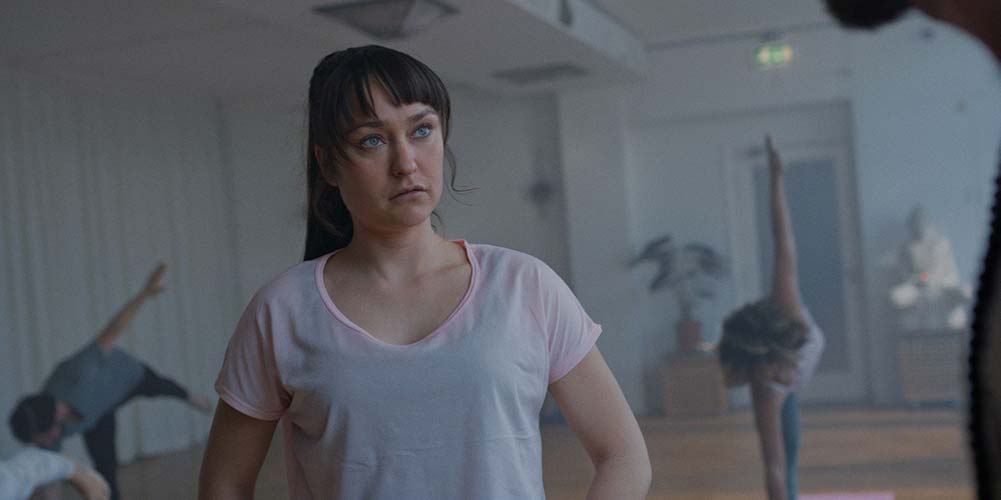
“Embrace your inner female warrior!” shrieks a gratingly American yoga instructor, to the ire of Mara (Melody Klaver), a stressed-out woman who came to the session to try and relax. Instead, she’s even more stressed out by this class which is seemingly populated entirely by US exports who have moved to a gentrified Amsterdam, where the film is set. The instructor’s cheesy, faux-feminist platitudes are what finally breaks Mara. What does embracing your inner female warrior even mean!? Mara takes him very literally and violently slaughters the entire class.
Many men devise simplistic narratives in which women fight back against patriarchy through violence, ignoring the subtleties that come with surviving as a woman in a sexist society. This misuse of female monsters is a concept I explored in chapter four of Beyond Empowertainment, our book on feminist horror films, so I felt gratified to see such a hilarious satire of it in Downward Facing Dogs. Mara decides to show her instructor what happens if she actually follows his advice and embraces her inner female warrior — and he doesn’t like it much at all.
Exam (dir. Sonia K. Hadad)
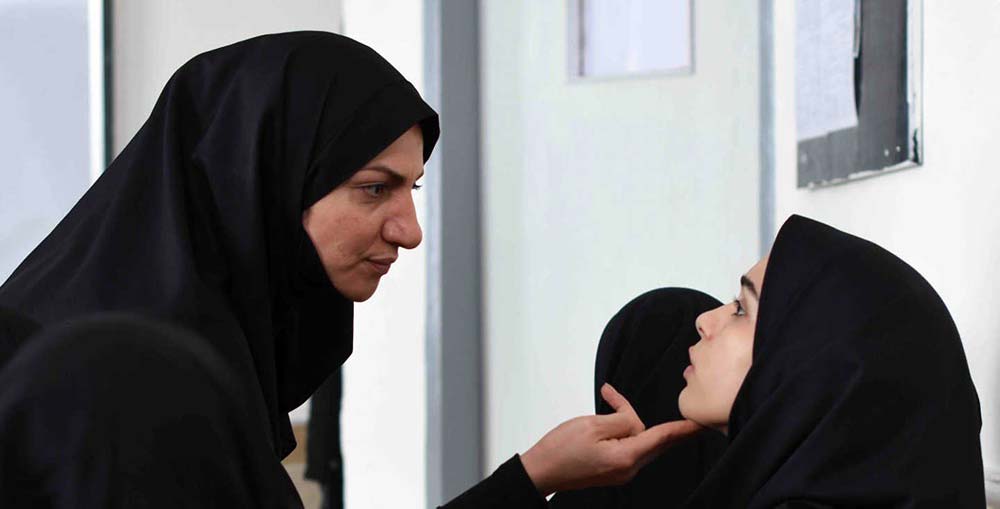
By far the most thrilling film I saw at LSFF was Exam, an Iranian short about a teen girl who leaves home in the morning with two objectives: smuggle a packet of cocaine to a client, and make it to school on time for a routine exam. In a series of events so agonisingly tense that they’re almost funny, these two goals collide in dangerous ways. Director Sonia K. Hadad masterfully controls the pace of her 15-minute film. To start with, Exam feels like your average day-in-the-life drama: we begin on our heroine studying over breakfast, light streaming in from behind her. As she takes the journey to school and sits her exam, the stakes slowly rise, and the increasing tension plays out mostly on her face, as worry turns to concern turns to outright horror. There were gasps in my screening.
Hot and Tasty (dir. Laura Jane Hodkin)
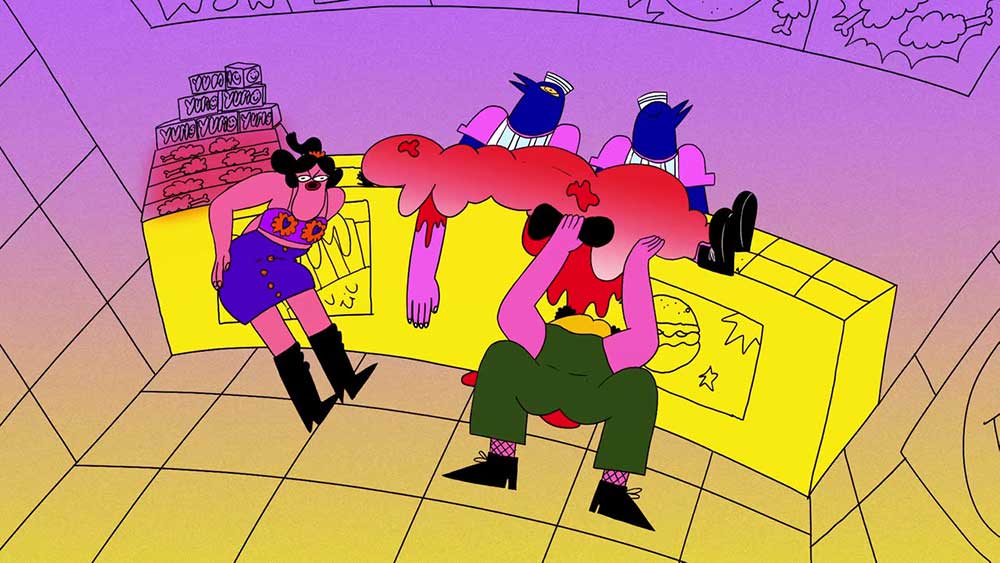
If you’ve ever capped off a drunken girls’ night out with a trip to one of London’s cheapest, dodgiest chicken shops, then you’ll laugh hysterically at Hot & Tasty. Animator Laura Jane Hodkin’s style is absurdist, almost abstract. Her characters warp and pulsate in the frame as they snort, sing their hearts out, piss in an alley, argue, and beg for chicken. It’s a fun little film that captures all the little ups and downs of getting drunk with your best friend, and how the experience can be so all-encompassing that you don’t notice that the workers behind the counter serving you your fast food are actually murderous birds. And you can watch it on YouTube now!
She Runs (dir. Qiu Yang)
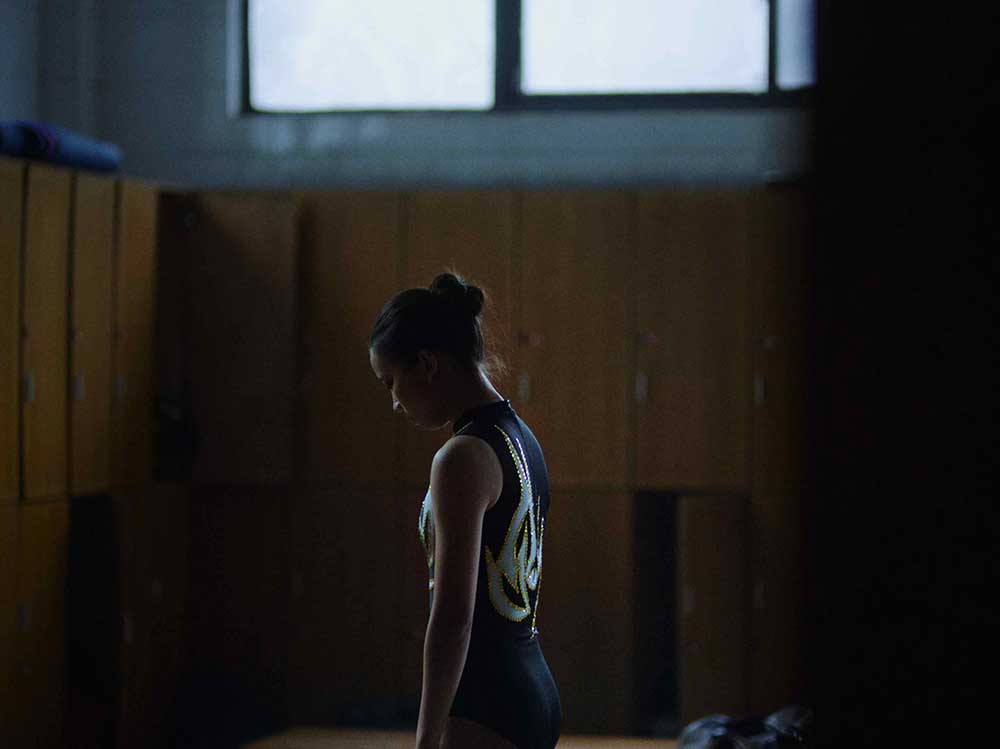
“Where is your sense of group honour?” an aerobic dance coach barks at her depressed, exhausted teen student, Yu Lu (Xue Jiayi). Director Qiu Yang shoots the dance team in clinical, static wide shots; we watch them move as a unit, rendering their individual identities irrelevant. Yu Lu is victim to that group mentality: her coach pushes her past her limits because she believes that Yu Lu’s mental and physical health come second to her duty to the team; her father endorses that mentality, believing Yu Lu worthless if she does not achieve an accepted standard of success. When we spend time alone with Yu Lu, the camera ixates on her and her alone, as she wallows in crushing isolation and mental strain. Especially in China, a communist country where group honour is often valued above individual needs, She Runs is a vital film, exploring the dangerous lengths one teen will go to find some little piece of independence for herself.
Short Calf Muscle (dir. Victoria Warmerdam)
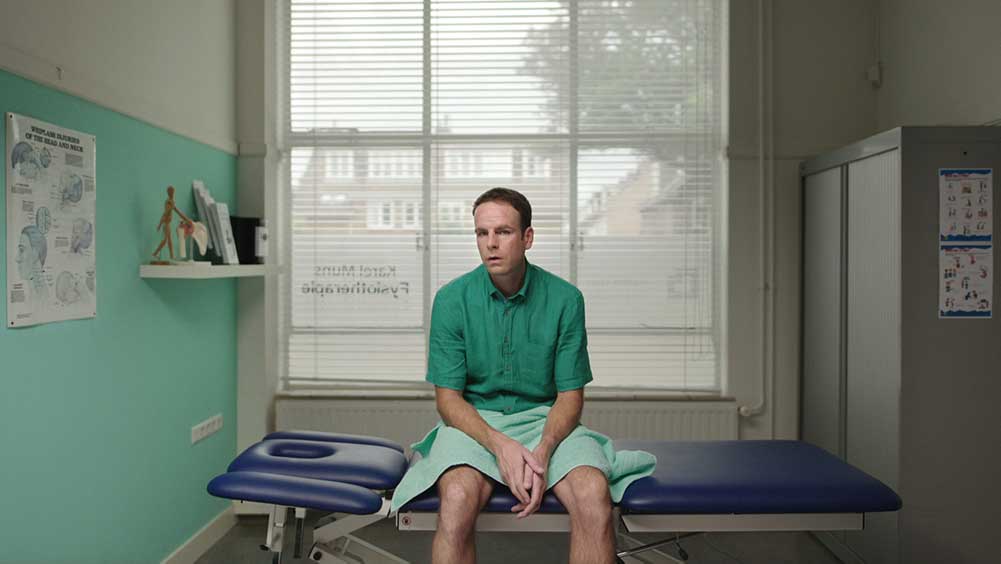
The opening night film Short Calf Muscle follows an odd day in the life of Anders (Henry van Loon), a tall Dutch man. As he goes about his day, he notices that people are treating him differently, staring at him like he’s some kind of carnival attraction. Quickly, we realise that while Anders seems like your average guy, everyone around him sees him as a gnome — the garden variety mythical creature with a red pointy hat and a large beard. This hilariously nonsensical premise tugs at the inherent absurdity of being prejudiced against anyone — whether that’s because of their gender, their race, or their… gnome-hood. Anders would know: he’s also a gay man, but he’s still taken aback at what it’s like to suddenly be seen as so visibly different when he himself feels completely normal. Because he is. It’s only the image and ideas that others project onto him that render him marginalised. The hilarity is only intensified by the fact that the identity people look down on him for isn’t one that actually exists.
Watermelon Juice (dir. Irene Moray)

Pol (Max Grosse Majench) and Bàrbara (Elena Martín) are, by all intents and purposes, happy. While holidaying with friends in Catalonia, everything is drenched in beautiful, bright sunlight. They gaze at each other adoringly, joke with and jostle each other with casual affection, and easily diffuse their disagreements with open communication… READ MORE

